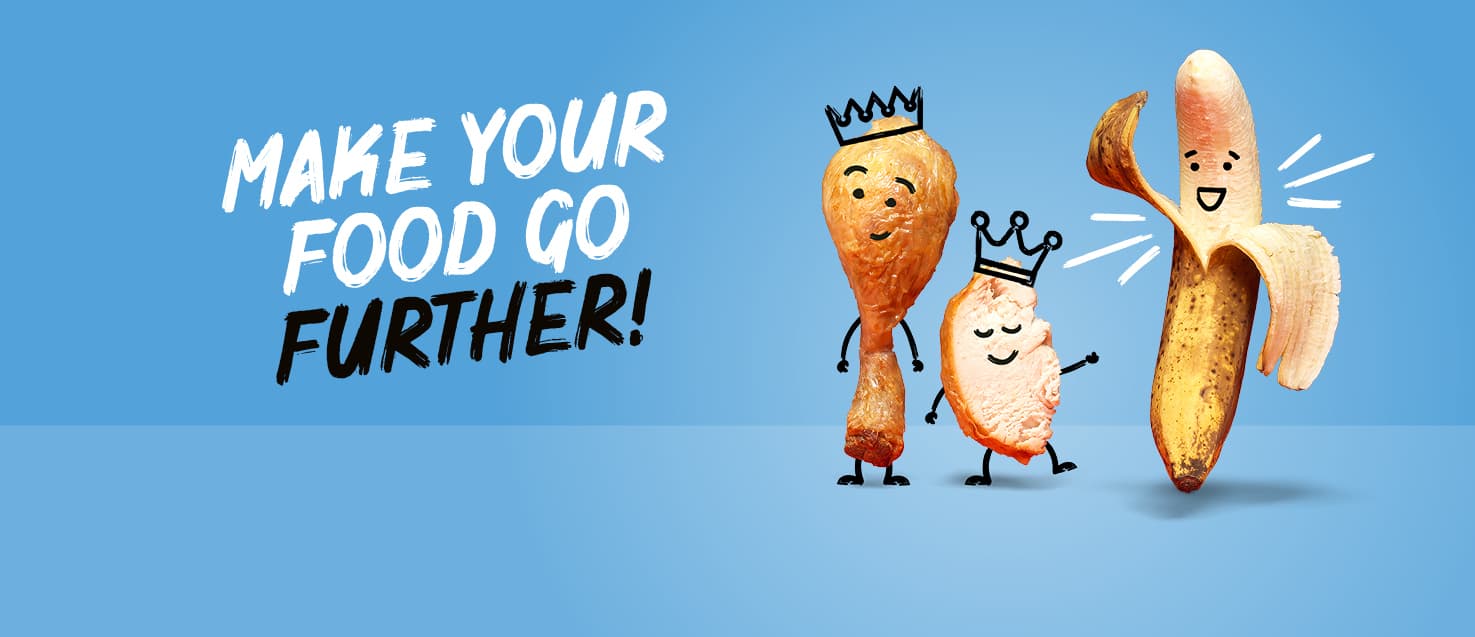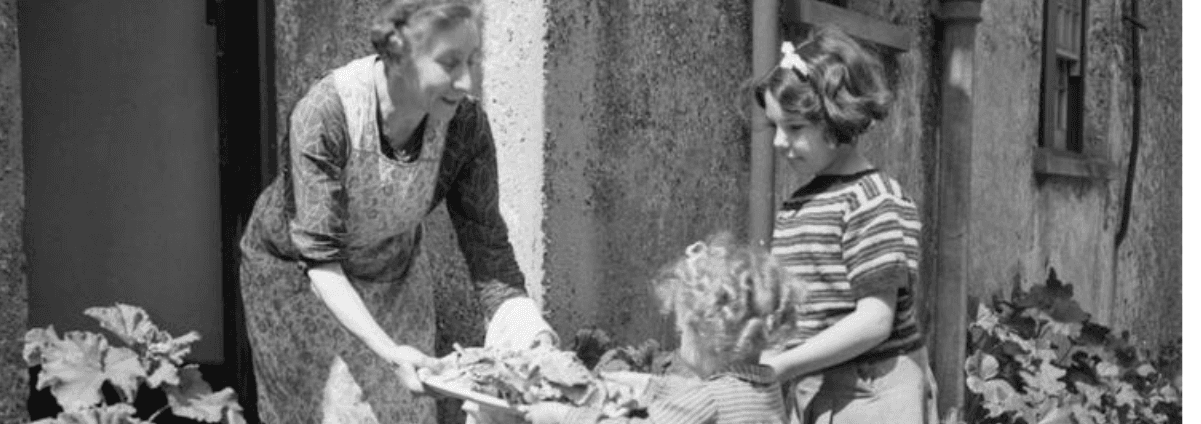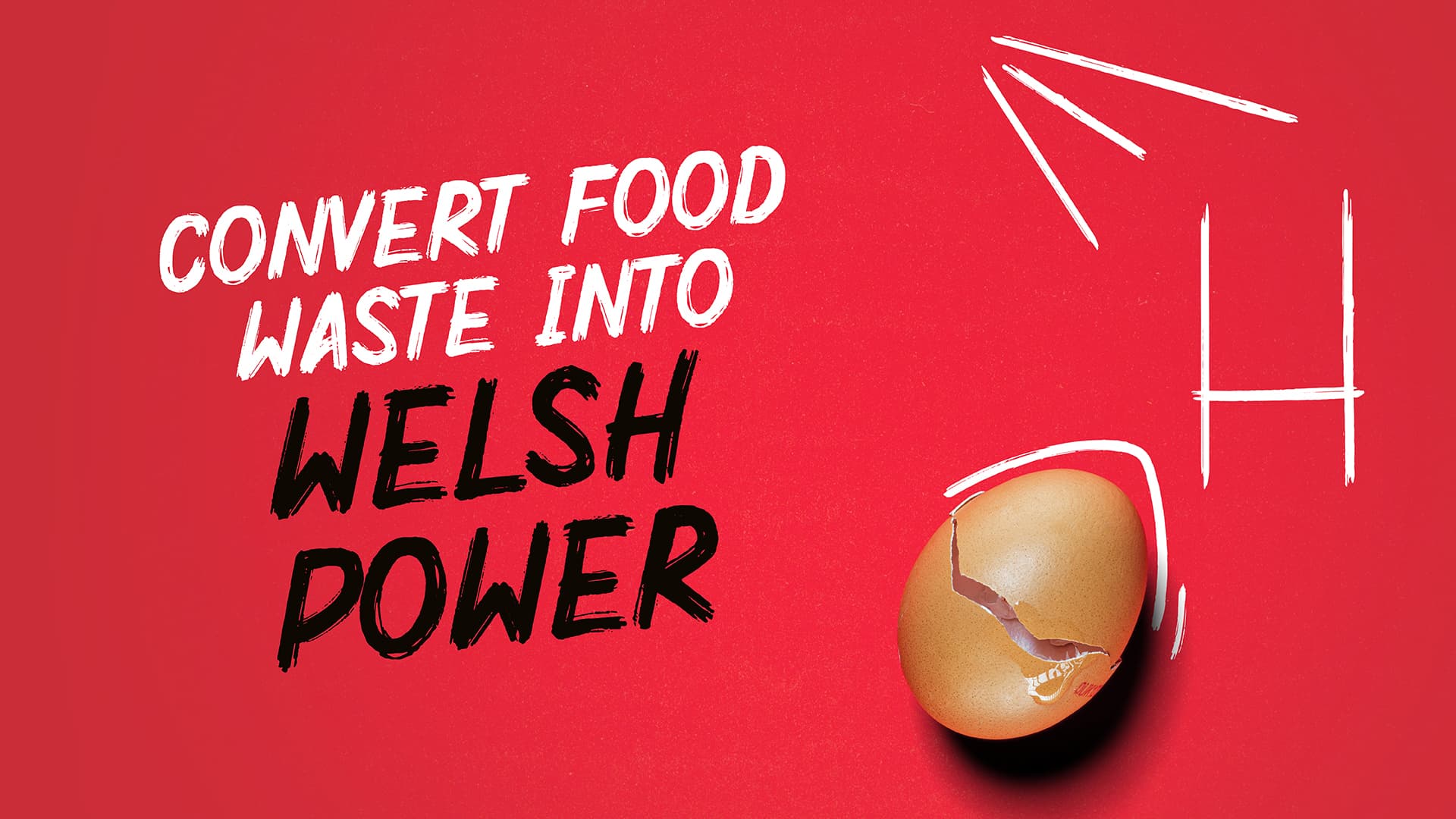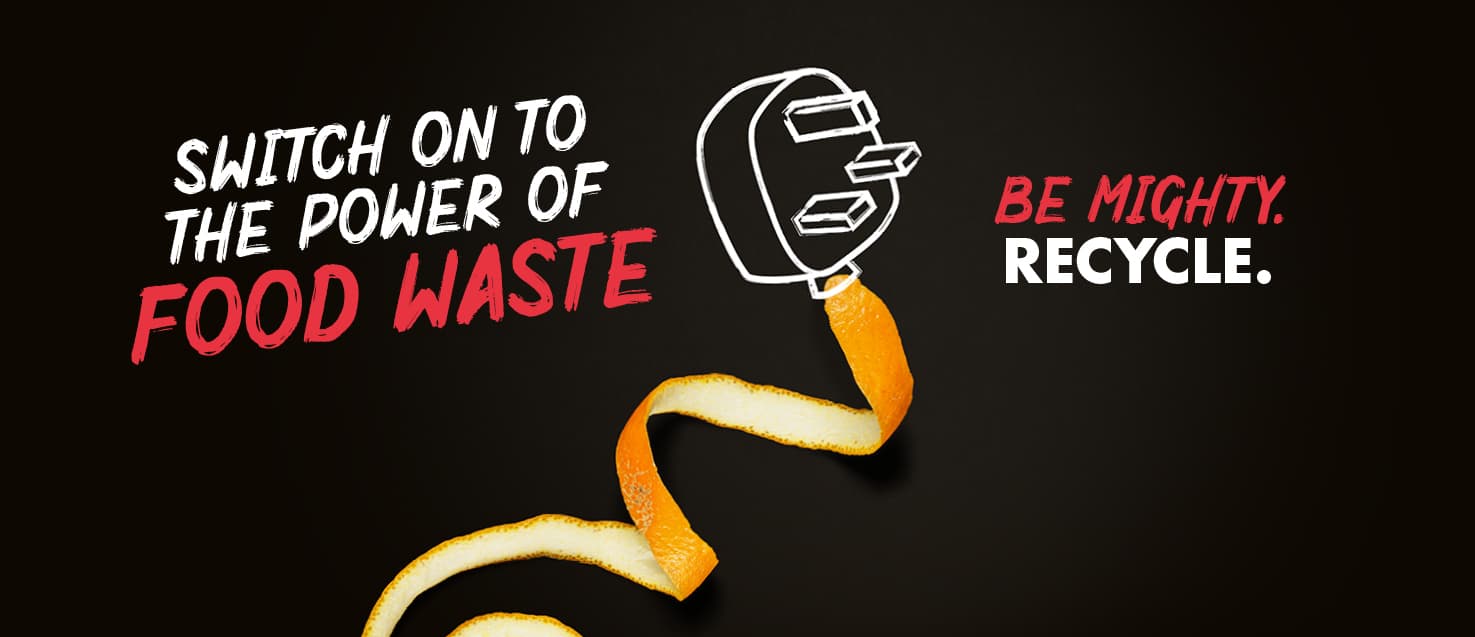Most of us know that food waste should go in its own caddy, but a quarter of the average rubbish bin is still made up of food. Throwing edible food away is costing us a fortune, but food that can’t be eaten has the potential to be transformed into energy, when recycled.
How does food waste create power?
When collected from your home, food waste is taken to an 'anaerobic digestion’ facility where the methane is harnessed and transformed into biogas, generating energy. Check out Matt Pritchard's video to see this amazing process in action!
Recycle your food waste like a pro – Matt’s 5 top tips to avoid “ych a fi”
“Some people think recycling food is a bit ‘ych a fi’, but it doesn’t have to be”. Recycling food waste actually creates fewer smells and is more hygienic than putting it in the bin. Avoid the yuck factor by following Matt’s top tips.
Calling all teachers!
Free curriculum-linked activities and competition.

This spring, join the fight against food waste!
Learn how to make your food go further and create power.

Recycling Then and Now - Melba’s Story
Melba won a competition to show why recycling was important in wartime.

